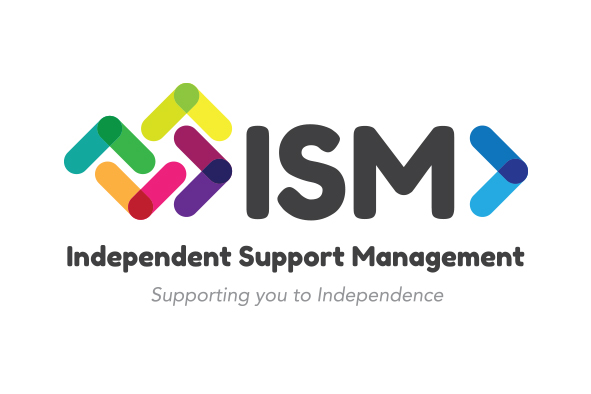🚨 UPDATED: Navigating New Guidelines for Support Claims (October 2024)
Welcome to ISM's Knowledge Hub! 👋
Today, we're diving into the latest updates in NDIS funding and support claim guidelines, effective from October 3, 2024. These changes introduce essential classifications for supports, new claiming rules, and specific responsibilities for Plan Managers and participants. Whether you're a participant, carer, or Plan Manager, this guide will help you understand what these changes mean for your NDIS journey.
Let’s break it all down:
🚥 New Support Classification System: "In List" vs. "Out List"
The NDIS now has a straightforward two-list system to clarify which supports are eligible for funding:
To qualify for funding, a support item must:
Be on the Eligible Supports list
Not appear on the Ineligible Supports list
Relate to a participant's disability, be cost-effective, and align with the goals outlined in their NDIS plan
This dual-list system is designed to make the approval process more transparent for all involved.
⏳ Transition Periods: Plan Managers vs. Participants
The NDIS transition timeline differs based on your role in the NDIS process:
Plan Managers have a 30-day transition period, ending on November 1, 2024. During this time, they need to adapt to the new classification and compliance requirements. After November 2, incorrect claims could result in financial liability for Plan Managers, so early adaptation is crucial.
Participants have a longer 12-month grace period until October 2025. During this time, if a participant claims an ineligible support under certain conditions (like a purchase under $1,500 without prior warnings), they won’t incur a debt. This grace period is intended to provide time to understand and adjust to the new guidelines.
🚫 Common Ineligible Claims: What’s Not Covered?
Certain supports are now explicitly ineligible for funding under the NDIS:
Category | Examples |
|---|---|
Health-Related | Supplements, over-the-counter medications |
Alternative Therapies | Crystal healing, non-approved animal therapy |
Daily Living | Rent, utilities, standard groceries |
These updates emphasise that NDIS funding is focused on disability-related supports directly contributing to a participant’s goals.
📆 New Claiming Rules: Time Limits and Compliance
Several important changes to claiming rules are now in place:
Time Limit on Claims: Starting October 3, 2024, claims for supports need to be submitted within two years of the service date.
Grace Period for Past Claims: There is a 12-month period for submitting claims for supports provided before October 3, 2024, to ease the transition.
Compliance Monitoring: The NDIS will actively monitor for non-eligible claims, especially repeated purchases of ineligible items or high-value non-NDIS supports. Repeated non-compliance could lead to adjustments in plan management types or immediate debt recovery actions.
🔄 Replacement Support Process: Requesting Alternatives
If a previously eligible support is now classified as ineligible, participants can request replacement supports, provided they:
Serve the same purpose as an eligible support
Have equal or lower cost
Show comparable effectiveness
This process allows participants to access similar supports within the updated funding framework, helping them achieve their NDIS goals effectively.
📋 Plan Manager Responsibilities: Ensuring Compliance
As Plan Managers play a critical role in processing claims, here’s what they need to prioritise:
Claim Assessment: Check each support against both the Eligible and Ineligible lists before approving. Consistency and documentation are key—Plan Managers should record reasoning for each approval or rejection.
Documentation Standards:
Match eligible claims with NDIS line items
Maintain records explaining approvals and declines
Document communication with participants, including any special circumstances
By carefully tracking each step, Plan Managers can avoid potential compliance issues and provide clear support for participants.
🤝 How ISM Can Help
At ISM, we're here to guide you through these changes, including:
Clear explanations of why certain items aren’t covered under the new guidelines
Examples of non-fundable items to help you understand what’s excluded
Support for participants navigating the replacement support process
Early compliance is essential, especially for Plan Managers with a short transition period. By adapting quickly, you can stay compliant and continue providing the best support for NDIS participants.
Key Takeaways:
The new "In List" and "Out List" provide clarity on support eligibility, aiming to streamline the claim process.
Transition timelines differ: Plan Managers have 30 days, while participants have 12 months to adjust.
Certain items, especially those not directly disability-related, are now clearly ineligible.
Time limits and compliance checks are now part of the claiming process, with NDIA actively monitoring for non-compliance.
Plan Managers must document their decisions thoroughly to maintain compliance and provide clear guidance to participants.
We hope this guide has been helpful in breaking down the latest NDIS funding updates! If you have any questions or need assistance navigating these changes, reach out to our friendly ISM team. We’re here to support you every step of the way on your NDIS journey! 😊
